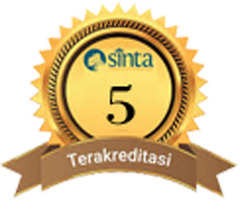INTEGRATION OF SCIENCE IN ISLAMIC SCHOOL CURRICULUM INTEGRATED IN ACEH (Case Study of Aceh Besar and Bireuen SD IT)
DOI:
https://doi.org/10.22373/fitrah.v1i1.29Keywords:
Science Integration, Curriculum, Integrated Islamic SchoolAbstract
Aceh has reformed Islamic education with a dichotomy with the application of the Al-Qur'an-based integrase curriculum by not forgetting to accommodate the national education curriculum. This study aims to determine the integration model of science in the curriculum at Aceh Besar Elementary School and Adzkiya Bireuen, to find out the implementation of science integration models in the curriculum in Aceh Besar Elementary School and Adzkiya Bireuen, and to find out the strengths and weaknesses of science integration in curriculum in Aceh IT Elementary School Great and Adzkiya Bireuen. This study uses a qualitative approach with techniques for collecting data on observation, interviews and documentation. The results of this study indicate that: 1). The model of science integration in the Integrated Islamic Elementary School curriculum in Aceh Besar and Bireuen is directed towards the purification-connected model because it is seen from the concept of curriculum, conceptual concepts, material concepts to the concepts of learning processes and evaluations carried out and purification which attempts to organize education in accordance with the values and normal of Islam kaffah and commitment in maintaining and maintaining Islamic teachings in all aspects of life. 2). The implementation of the integration model of science in learning at the Integrated Islamic Elementary School in Aceh Besar and Bireuen begins with the planning phase: preparation of syllabus, lesson plans and student books. Implementation phase and evaluation phase. 3). The advantages and disadvantages of the science integration model in the Integrated Islamic Elementary School curriculum in Aceh Besar and Bireuen are as follows: a. The advantages are: (1) students get closer and explore the intricacies of the knowledge of the Koran, (2) the planting of the Koran from an early age to students, (3) students are more motivated in learning, (4) develop pride students towards Islam and the Qur'an, (5) always love the Koran and increase the faith in monotheizing Allah. b. The disadvantages are: (1) the difficulty of the teacher in selecting the verses of the Koran in accordance with the material, (2) the limited ability of the teacher to interpret the verses of the Koran or Hadith, (3) limited time in the preparation of Qur'an-based material every day, (4) learning the integration of the Koran (Fahmul Qur'an) is difficult to run optimally by teachers who have not been trained.
Downloads
Published
How to Cite
Issue
Section
License
Authors who publish in this journal agree to the following terms:
- Authors retain copyright and grant the journal right of first publication with the work simultaneously licensed Attribution-NonCommercial-ShareAlike 4.0 International (CC BY-NC-SA 4.0) that allows others to share the work with an acknowledgment of the work's authorship and initial publication in this journal.
- Authors can enter into separate, additional contractual arrangements for the non-exclusive distribution of the journal's published version of the work (e.g., post it to an institutional repository or publish it in a book), with an acknowledgment of its initial publication in this journal.
- Authors are permitted and encouraged to post their work online (e.g., in institutional repositories or on their website) before and during the submission process, as it can lead to productive exchanges and earlier and greater citation of published work. (See The Effect of Open Acces)









